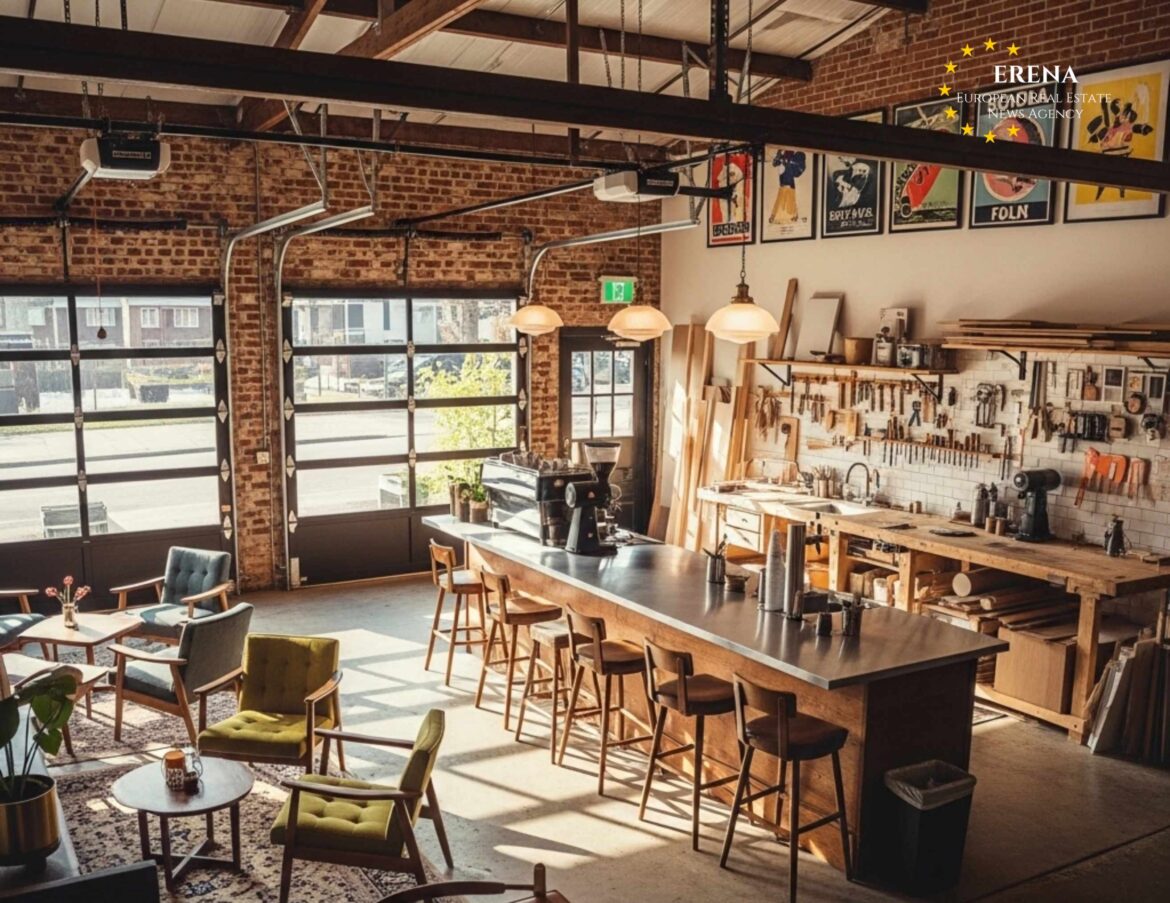Garages have long ceased to be just storage areas for cars or old items. Amid rising commercial real estate prices and the growing popularity of small businesses, more and more property owners are considering transforming their garages into income-generating business spaces. These can range from workshops and mini-stores to offices, studios, or even pickup points for online orders. This article explores the prospects of such transformations, usage options, legal considerations, and potential profitability.
Why Consider a Garage as a Business Space
1. Accessibility and Savings on Rent
For aspiring entrepreneurs, one of the main expenses is commercial rent. Using your own garage avoids this cost and allows you to start a business with minimal investment. This is especially relevant during times of economic uncertainty and rising property prices.
2. Flexibility of Use
A garage can be adapted for many purposes: from setting up an online shop with a small warehouse to an electronics repair shop, mini-bakery, or yoga studio. Since the space belongs to you, it can be tailored to fit the specific needs of your business.
3. Minimal Administrative Barriers
In many countries, including parts of Eastern Europe, converting a garage into a business space doesn’t involve complex registration procedures—especially if the business doesn’t require heavy foot traffic or industrial-grade equipment.
Popular Business Ideas for Garage Conversion
1. Workshop or Repair Services
Garages are ideal for repair workshops—whether for household appliances, electronics, furniture, or bicycles. The space accommodates tools, work areas, and order processing without the need for costly rentals.
2. Bakery or Home Food Production
With the right sanitary conditions and permits, a garage can become a mini-bakery, pastry kitchen, or frozen food production space. Many successful food businesses began in a garage.
3. Studio or Creative Space
Photography studio, recording studio, art workshop, or even a therapist’s office—many creative businesses can thrive in a well-insulated and renovated garage.
4. Online Retail and Inventory Storage
With the rise of e-commerce, the need for small storage and packaging hubs has grown. A garage can be perfect for storing, sorting, and shipping products.
5. Coworking or Mini-Office
As the number of freelancers and remote workers increases, so does demand for private workspaces. A converted garage can serve as a cozy office for one or two professionals.
Things to Consider Before Getting Started
1. Zoning and Legal Status
Check local zoning laws to ensure commercial activity is permitted. You may need to change the designation of the garage from residential to commercial use.
2. Utilities and Infrastructure
Many businesses require electricity, heating, water, and internet. Be sure to budget for installing or upgrading these utilities.
3. Safety and Fire Codes
If your business involves equipment, cooking, or flammable materials, compliance with fire safety standards is crucial. Smoke detectors and fire extinguishers are typically the minimum requirement.
4. Noise and Neighbor Relations
If your business may generate noise—such as carpentry or recording studios—ensure proper soundproofing and consider potential complaints from neighbors. Detached garages are often more suitable in such cases.
5. Sanitary Standards
Food preparation or client-facing businesses require proper sanitation, including running water, sewage systems, and hygienic conditions.
Potential Return on Investment
Garage conversion costs typically range from €2,000 to €10,000 depending on the business type. Monthly income may range from €300 to €2,000 or more with a steady client base. This option is particularly attractive in small towns where commercial rents are disproportionately high compared to demand.
Real-Life Success Stories
Numerous success stories around the world began in garages:
- Apple started in a garage in Los Altos;
- Many home bakeries produced their first cakes and cupcakes in garages;
- Dozens of Etsy and eBay stores operate from well-organized garages.
These examples prove that limited space is no barrier to entrepreneurial ambition.
Conclusion
Converting a garage into a business space is a cost-effective and flexible way to start your own venture. With low entry costs, various use options, and strong income potential, it can be the first step toward a sustainable business. The key is to choose the right niche, consider all technical and legal factors, and implement your idea with professionalism.

